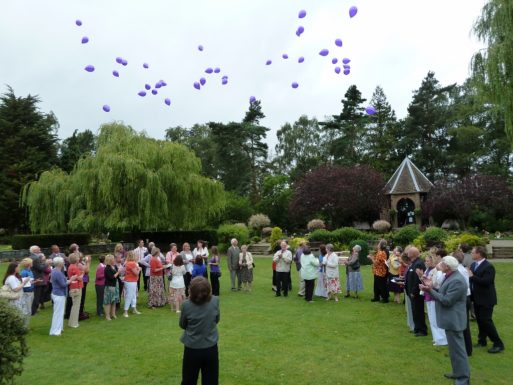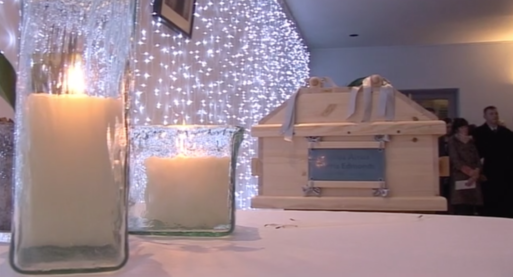As global projections predict a rise in religious affiliation among people worldwide, the percentage of religiously affiliated Americans continues to drop. The Pew Research Center has found that a growing minority of Americans, particularly Millennials, are religious “nones” — atheists, agnostics and those who don’t identify with any organized faith. The Center’s study, “The Changing Global Religious Landscape” revealed that in 2014 the “nones” rose to 23 percent of the adult population, up from 16 percent in 2007.
As the group of “nones” grows in number, secular funerals are becoming more common, as atheists and agnostics use non-religious rituals to memorialize their loved ones who have died. Rituals help us grieve, and lack of religion does not have to mean lack of ritual.
Secular Funerals More Flexible
Atheist or Humanist funerals avoid references to the after-life, on which many religious funerals center. They also tend to be very personal. In the absence of scripted prayers or religious protocols, secular funerals are generally devoted to sharing memories and celebrating the life of the person who died. Loved ones often incorporate favorite songs and poems in much the same way that religious mourners incorporate hymns and prayers. Songs and readings may be pieces that reflect on the cycle of life. Or they may simply reflect the loved ones’ personal tastes.
Because no religious edict dictates where secular funerals take place, people hold them in a variety of locales. Some mourners choose a “traditional” funeral home. Others hold the service in parks, backyards, theaters, community centers or crematoriums. And if the person who died opted for cremation rather than burial, there’s a lot of room to dream of unique places to hold a memorial.

Balloon release at a memorial service
Credit: funerals.com
Rituals Heal Grief
Rituals, whether religious and formal or informal and secular, are an important tool for helping mourners move through grief. They can also help restore a sense of control in the chaotic emotional environment that follows loss. Michael Norton and Francesca Gino published an article in the Journal of Experimental Psychology titled, “Rituals Alleviate Grieving for Loved Ones, Lovers, and Lotteries.” In it, they define a ritual as a “symbolic activity that is performed before, during or after a meaningful event in order to achieve some desired outcome — from alleviating grief to winning a competition to making it rain.”
The point is that rituals help people make meaning from the events of their lives. Since meaning-making is one of the most important pieces of developing and predicting resiliency, let’s embrace the tool of ritual. It can ease our suffering whether we’re religious or not.

 Secular Funerals and Rituals Are Becoming More Common
Secular Funerals and Rituals Are Becoming More Common



 “Help Me, Helen”
“Help Me, Helen”
 Recovering Cremation Remains After the Los Angeles Fires
Recovering Cremation Remains After the Los Angeles Fires
 “As Tears Go By” by Marianne Faithfull
“As Tears Go By” by Marianne Faithfull














